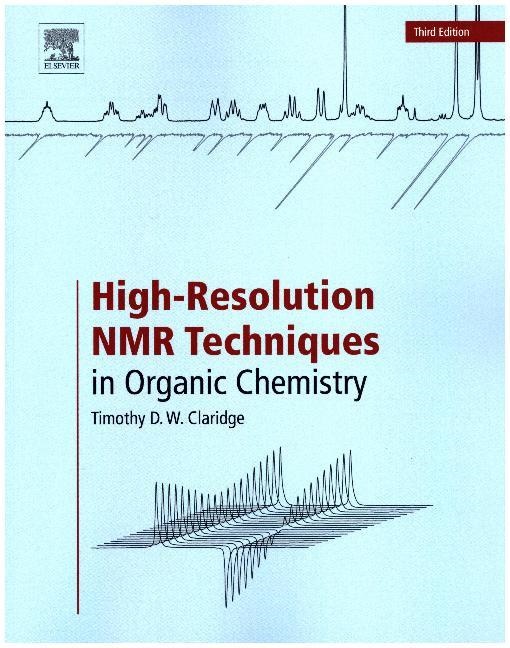Read more
Informationen zum Autor Tim Claridge has over 25 years of practical experience in NMR Spectroscopy and is presently Professor of Magnetic Resonance and Director of NMR Spectroscopy for Organic Chemistry and Chemical Biology in the Department of Chemistry at the University of Oxford. His interest in NMR was ignited as an undergraduate student of Chemistry and Analytical Science whilst undertaking a year-long industrial placement in the spectroscopy laboratory of a leading pharmaceutical company. He subsequently completed a DPhil in protein NMR spectroscopy under the supervision of the late Andy Derome in the Dyson Perrins Laboratory at the University of Oxford. He then remained in Oxford and was appointed manager of the organic chemistry NMR facilities and in this capacity co-authored the undergraduate text "Introduction to Organic Spectroscopy (OUP)" with Prof Laurence Harwood and produced the first edition of "High-Resolution NMR Techniques in Organic Chemistry" (Pergamon Press). He became University Research Lecturer (Reader) in 2006, and was made a full Professor and a Fellow of the Royal Society of Chemistry (RSC) in 2014. He served for many years on the RSC NMR Discussion Group committee including as its Chairman for three years. He has co-authored over 170 research papers and his research interests focus broadly on the application of solution-state NMR methods for characterizing small molecules, and for studying their behavior and their interactions, especially as ligands for biological macromolecules. Klappentext High-Resolution NMR Techniques in Organic Chemistry, Third Edition, describes the most important NMR spectroscopy techniques for structure elucidation of organic molecules and the investigation of their behavior in solution. Appropriate for students as well as chemists, this thorough revision covers the practical aspects of NMR instrumentation and explores the capabilities and the limitations of key one-dimensional and two-dimensional analytical methods including J-resolved, nuclear Overhauser, diffusion, and experimental spectroscopic techniques. The Third Edition includes valuable updates on recent hardware developments and common and novel techniques. It also features an entirely new chapter on using NMR methods to study protein-ligand binding processes, reflecting this area's growing importance for life science and medicinal chemistry research in industry and academia. Using accessible figures to present and explain techniques, the book limits complex mathematical descriptions and provides multiple worked examples throughout. Additionally, a new, cumulative "Example Problem Solving" chapter demonstrates the application of described methods with readily available samples; readers can view the spectra, follow the interpretation, and collect their own data for comparison and practice. A trusted authority on this critical expertise, High-Resolution NMR Techniques in Organic Chemistry, Third Edition, is an essential resource for every NMR manager and chemistry student. Inhaltsverzeichnis 1. Introduction 2. Introducing High-Resolution NMR 3. Practical Aspects of High-Resolution NMR 4. One-Dimensional Techniques 5. Introducing Two-Dimensional and Pulsed Field Gradient NMR 6. Correlations Through the Chemical Bond I: Homonuclear Shift Correlation 7. Correlations Through the Chemical Bond II: Heteronuclear Shift Correlation 8. Separating Shifts and Couplings: J-Resolved and Pure Shift Spectroscopy 9. Correlations Through Space: The Nuclear Overhauser Effect 10. Diffusion NMR Spectroscopy 11. Protein-Ligand Screening by NMR 12. Experimental Methods 13. Structure Elucidation and Spectrum Assignment ...

